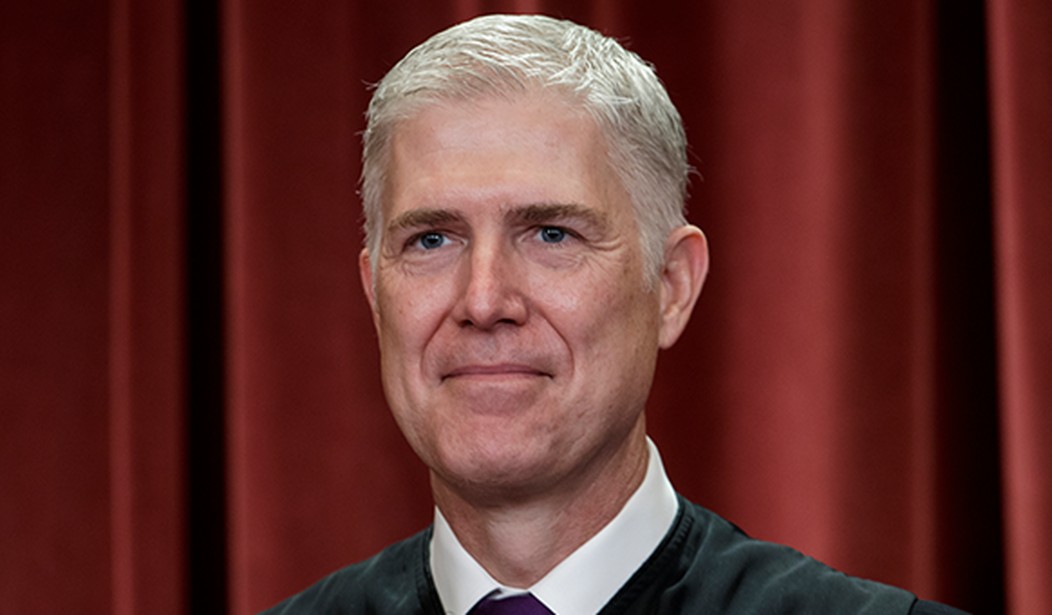Associate Justice Neil Gorsuch was the first in a string of successful judicial nominations for the Trump White House. Not all of them have been smooth; Justice Kavanaugh’s was one of the most brutal in recent memory. And yet, while the Left views any conservative justice on the Court as a slide toward fascism, some conservative jurists have sided with the liberals in the recent spate of Supreme Court decisions.
Today, Justice Gorsuch sided with the liberal wing in striking down what he described as a “vague” gun law, one that Kavanaugh noted was essential in driving down violent crime (via Fox News):
Gorsuch sided with liberal justices in a 5-4 decision in United States v. Davis, for which he wrote the opinion of the court. The law in question calls for longer sentences when a person uses a firearm in connection with a "crime of violence," which is defined as a felony "that by its nature, involves a substantial risk that physical force against the person or property of another may be used in the course of committing the offense." That definition is rather confusing, Gorsuch said.
Even the government admits that this language ... provides no reliable way to determine which offenses qualify as crimes of violence and thus is unconstitutionally vague," he wrote. Vague laws leave it to unelected attorneys and judges to determine what acts qualify as crimes, Gorsuch said, when it is really Congress' job to make that decision with the laws that they pass.
In the current case, Maurice Davis and Andre Glover were convicted of robbery and conspiracy to commit robbery under the Hobbs Act, which covers robbery, attempted robbery, or extortion affecting interstate commerce. They were each hit with longer sentences because robbery and conspiracy were found to be "crimes of violence." An appeals court found that the clause in the statute defining crimes of violence was unconstitutionally vague.
Recommended
Fox added that Kavanaugh warned of the parade of horribles this could bring, especially when it comes to prosecuting new gun cases. He also noted that thousands of violent criminals could be released sooner due to this ruling. He also noted that the Court striking down a 33-year old law in this abrupt about-face on its constitutionality was an “extraordinary event” (via The Hill):
…Kavanaugh wrote that striking down the rule "is a serious mistake." He cited statistics on gun violence, tying gun laws like the one challenged before the court as having "contributed to the decline of violent crime in America."
"A decision to strike down a 33-year-old, often-prosecuted federal criminal law because it is all of a sudden unconstitutionally vague is an extraordinary event in this court," he wrote.
And he warned that the impact of the ruling could be "severe," arguing that it could lead to the early release of those convicted under the law and "thwart Congress' law enforcement policies, destabilize the criminal justice system, and undermine safety in American communities."
Kavanaugh also pointed to other laws throughout the country that similarly do not specifically define a kind of crime, but allow courts to gauge an alleged offense on a case-by-case basis.
For law and order conservatives and the Department of Justice, this was a defeat. For those who support criminal justice reform, it could be viewed as a decision that should incentivize Congress to bring some clarity to the statutes. Moreover, bring light to the trend of overcriminalization that CJR advocates often speak about as well. Either way, the decision is rendered.

























Join the conversation as a VIP Member